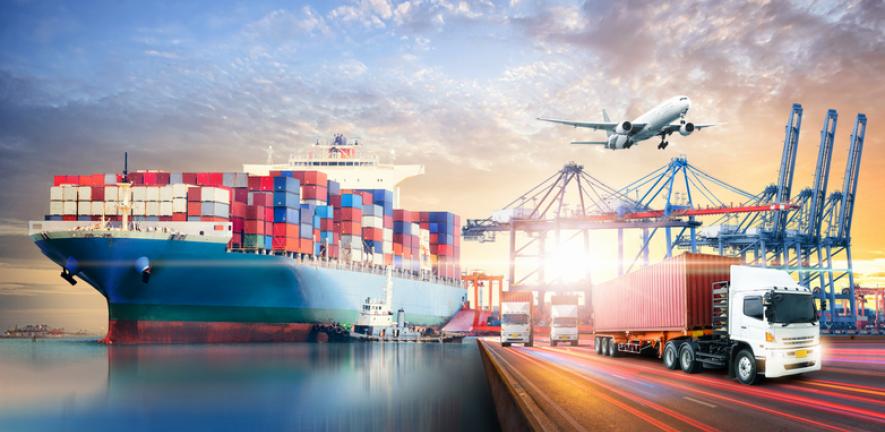
This three-day virtual study group run by V-KEMS aimed to bring mathematical scientists and other disciplines together to solve end user defined challenges with the aim of mitigating the impact of COVID-19, climate change and the change of regulations on the shipping and supply chain network.
Background
Increased border restrictions, a reduction in the availability of workers and the increased demand for home delivery over the past 2 years has meant that the freight transport network has had to drastically adapt its operations. The consequent impact on the supply chain has been substantial, and can be observed by simply looking at supermarket shelves.
Various stages of the shipping and supply chain network have had to deal with the effects of COVID-19, climate change and the change of regulations. These include:
- Transport from producers to importers
- Importing into the UK - Ports
- Transport from ports to supermarkets
- Transport from supermarkets to customers
The particular issues faced by the network include:
COVID-19
- Staff shortages
- Restricted use of port facilities
- Risk of infection when moving goods/goods contamination
- Increased online ordering during lockdowns
Climate
- The direct effect of climate on the water ways
- The impact of sea levels rising
- Increase of storms etc.
- Pollution issues
- Change in consumer habits:
- People are less keen to buy things from across the globe leading to an increase on local sourcing
- Reduction in meat consumption
- Reduction in fossil fuels - less oil consumption, so less oil will be transported.
Impact of change of regulations on shipping
- Staff shortages
- Fuel crisis
- Change in boarder regulations
Aims and Objectives
The aim of this event was to bring together those working in mathematical modelling, statistics, operations research, logistics and supply chain management and other disciplines together to solve end user defined challenges in transport logistics.
The following challenges were presented to the study group:
This subgroup looked at modelling trust at the UK boarders, focusing on the relationship between the importer and the government.
The reducing friction in International Trade (RFIT) project was initiated in March 2019 and is a step towards a more operationally efficient supply chain network, as it provides transparency in the data between producers, importers and the UK border.
During the study group, particiapnts planned to model the relationship between an importer and the UK government. This model was expected to incorporate attributes such a calculative trust and cognitive trust etc., as detailed in the paper: The impact of a blockchain platform on trust in established relationships: a case study of wine supply chains, while also considering uncertainties.
2. Delivering Shore Power, presented by Alex Pepper– Senior Policy Lead - ESG at UK Major Ports Group (UKMPG)
The Department of Transport currently has a call for evidence on shore power and implementing maritime commitments in the Transport Decarbonisation Plan, which can be found here.
The call for evidence looks to see how the government can support the wider implementation of shorepower in the UK andThe delivery of shorepower at ports is often quite challenging, with many ports lacking a clear demand or available electrical capacity to deliver such demand even if it was to exist. Concerns exist as to whether a mandate on shorepower would be appropriate, when the costs can vary significantly from site to site, and there may be other lower cost options that have a greater emission reduction benefit. Is shorepower good value as an emissions reduction scheme for shipping and as a contributor to the Transport Decarbonisation Plan?
A detailed outline of the problems presented can be found here:
A working paper is published below, which highlights the discussions that took place at the Study Group and the initial findings.
Delegate Information
This event was delivered virtually as part of a Programme of activity by V-KEMS. Please note that the names and affiliations of registered delegates will be shared with ICMS and the KTN.
Registration
Registrations for this event are now closed.

